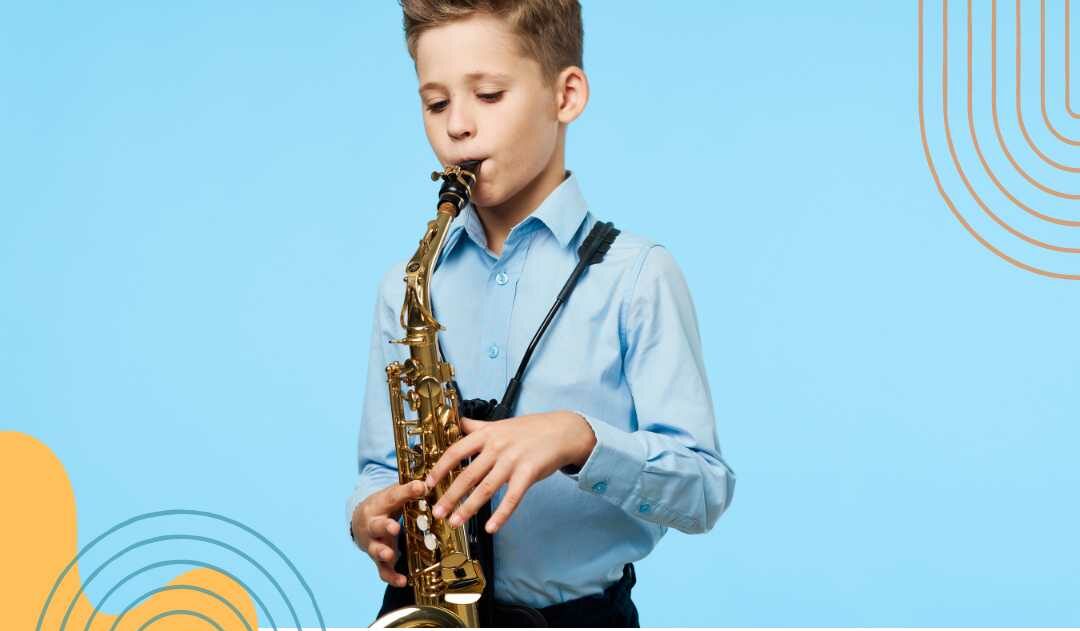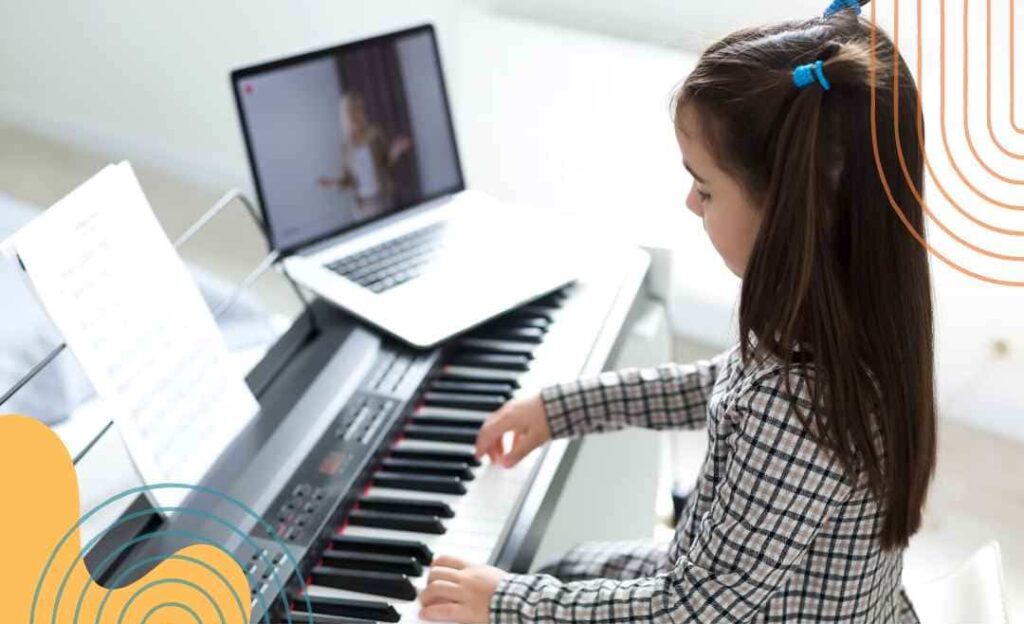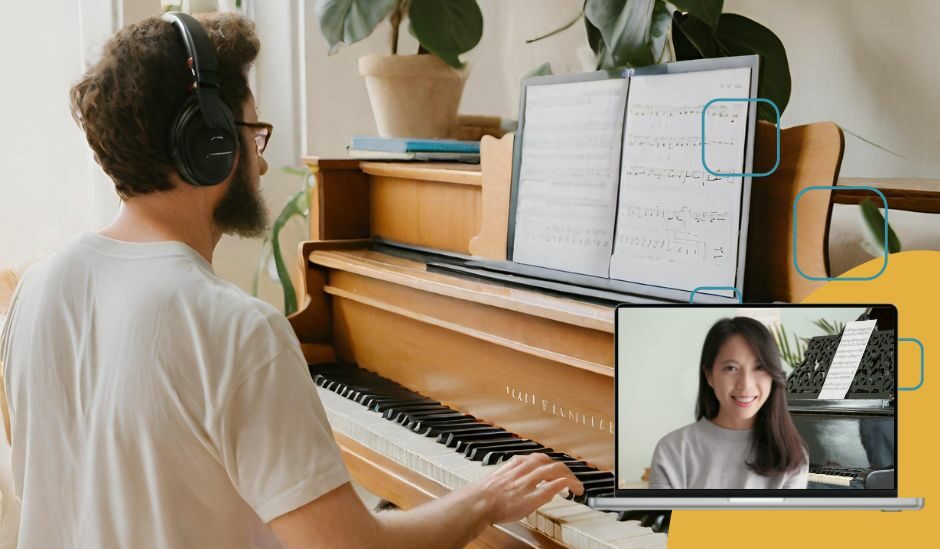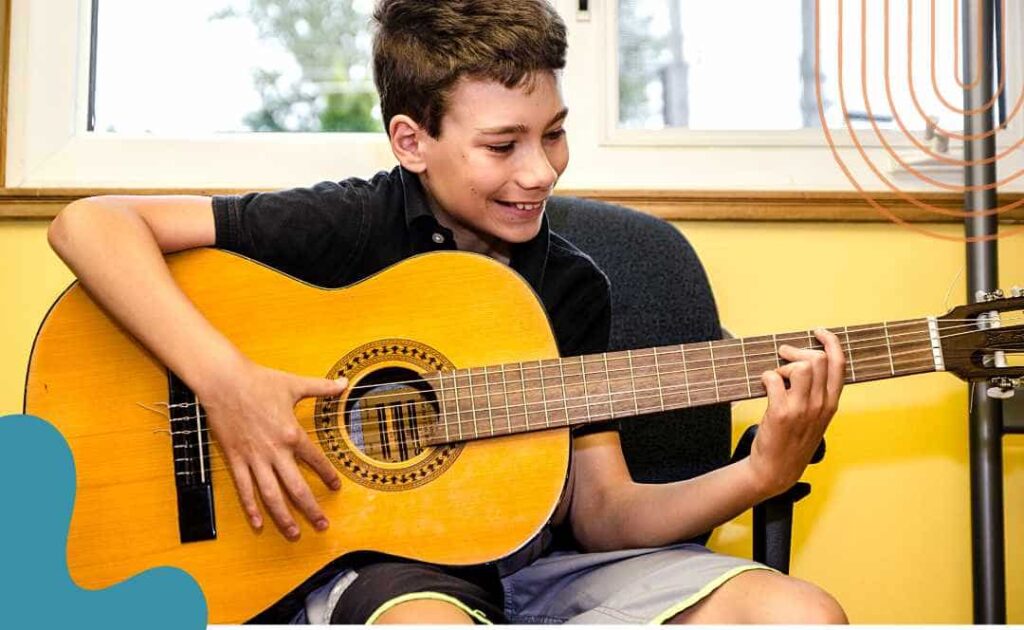Getting Started with Saxophone
What's the Best Age to Learn Saxophone?

Rose Park
updated 1/24/25 • 4 min read
The best age to learn saxophone:
Before looking for a saxophone teacher, it’s important for parents to know the right age to start saxophone lessons. The best age to start saxophone lessons is between the ages of 8 and 10 years old. For young beginners around 8, the Alto and tenor saxophone are popular choices, while the Baritone saxophone is more suitable for students around 9 or 10 years old due to its weight.
Many people start saxophone later in life, and it’s never too late to begin your musical journey! No matter how old you are, playing the saxophone gives you happiness in all aspects of life.
Try a Half Hour Saxophone Lesson Completely For Free!
Meet your saxophone teacher, begin 1-on-1 instruction. No contract or credit card necessary.
60+
Instructors
30,000+
Lessons taught
4.9/5 ⭐⭐⭐⭐⭐
Average lesson rating
Table of Contents
4 factors to consider when starting saxophone
Do you have a quiet, dedicated space to play saxophone?
Creating a focused, quiet space for practicing the saxophone is key to getting the most out of your lessons. This is even more important for online saxophone lessons, where distractions or interruptions can lower the quality of your learning.
Is the student motivated to play saxophone?
Learning to play the saxophone takes time, dedication, and money, especially for beginners. If your child doesn’t show any interest in playing the saxophone or participating in school bands like marching, jazz, or concert bands, pushing them to do the lessons can potentially do more harm than good. Besides, they won’t be motivated enough to practice or improve, which will frustrate both the child and the teacher.
Try to encourage your child’s interests. There are plenty of other engaging activities that your child might actually love to try and learn. And if they do express an interest in music, consider other instruments besides the saxophone.

Which saxophone does the student want to play?
When it comes to saxophones, there are different types like Alto, Tenor, Soprano, and Baritone. For younger beginners around 8 years old, the Alto saxophone is a popular choice. For children around 12, they can try the Tenor saxophone if they prefer more deep and rich sound.
One of the advantages of playing the saxophone is the consistency in fingering and note reading across different types of saxophones. Whether you’re playing the soprano or baritone saxophone, the fingerings remain the same. It’s pretty common for beginners to start with the alto saxophone and later switch to the tenor or baritone as they grow older and more experienced.
Are regular saxophone lessons within your budget?
The key to making the most of your saxophone lessons is consistency. The best approach is to take regular, weekly lessons. While some may think biweekly lessons are enough, be aware that progress tends to slow significantly when there’s a break of at least a week between lessons. It’s easy to lose track of measurable growth over time. This is why it’s important to plan and budget for monthly lesson expenses.
Based on our article on saxophone lesson costs, the average price for saxophone lesson is $65 per hour. You don’t need to start with 45-minute or 60-minute lessons right away. A half-hour weekly lesson is perfectly fine for beginners.
At Lesson With You, we offer half-hour saxophone lessons for $35 with teachers with advanced degrees in saxophone from top schools with extensive performance experience. No contracts required.
When is my child ready to start saxophone?
1. Your child likes contemporary music
If your child enjoys listening to Jazz, Pop, Blues music, it’s a good sign that they may be interested in playing the saxophone. Many children are drawn to the saxophone because of its unique sound and fancy techniques played in Jazz music.
Saxophone is suitable for various genres, including Classical, Blues, and Rock. Ask your child about their preferred styles of music and choose the saxophone based on their interests.
2. Your child can hold the saxophone and breathe for a long time
Start Your Free Trial Lesson
Take a 30-minute complimentary lesson with exceptional teachers. Flexible scheduling, Competitive Pricing, No contracts required.
3. Your child can follow instructions
Playing the saxophone is an exciting experience for your child to learn proper mouth control (embouchure), rhythm, and tone production. Saxophone lessons generally cover note reading, improvisation, and music theory, with the teacher providing feedback on posture and sound control.
If your child can follow instructions and demonstrate readiness, they are ready to learn the saxophone! For children under 10 years old, parents can also join in the lessons to provide extra support.
4. Your child can stay focused at least 15 minutes
Saxophone lessons typically last around 30 minutes, and during that time, your child will need to stay focused for about 15 to 20 minutes. Keeping good focus is great for improving your child’s musical skills and absorbing the details they learn during lessons.
If you’re not sure if your child can do it, you can help them practice focusing by engaging in activities they enjoy, like reading books, doing arts and crafts, or solving puzzles together.
Early saxophone learning and its long-term benefits
Beginning saxophone lessons early or focusing on long-term progress has numerous benefits.
Taking saxophone lessons gives children a sense of accomplishment and boost their confidence, but it also teaches them problem-solving skills. Unlike other fields, music lessons also helps them develop problem-solving skills. They learn to think critically and creatively as they work on fixing mistakes and improving their playing.
As young students mature, the saxophone opens doors to various musical avenues, including orchestra, concert bands, jazz bands, and opportunities for solo performances at different events.
Regular practice also cultivates commitment, self-discipline, and patience, valuable skills that can be applied to all aspects of life. Overall, starting saxophone helps you or your child develop a great saxophone technique that they can continue to improve throughout their life. And best of all, it brings them so much happiness through music!

Explore LWY music lessons
How to find the best saxophone teacher
Finding the right, skilled saxophone teacher can be a challenge when starting lessons. So, what are some common mistakes made by beginners?
- Starting with an ordinary saxophone instructor and then switching to a better one later
- Failing to thoroughly review the teacher’s educational background
- Learning from a teacher who also teaches other instruments like trumpet
- Taking saxophone lessons that charge significantly less than the average rate
5 tips to kickstart your saxophone journey
Maintain saxophone in good conditions
Taking care of a saxophone is a big responsibility, especially for young beginners. Remember to spend a few minutes after playing to clean the instrument and remove any moisture. Here are some easy maintenance tips for saxophone players:
- Keep your sax clean and shiny by using a soft cloth or a special cleaning kit.
- Use two reeds and rotate them to make them last longer and keep your sound consistent.
- Make sure to brush your teeth before playing
- Keep one hand on your saxophone while playing to avoid any accidental drops.
- When you’re done playing, always store your saxophone in a dry and safe case to protect it.
Place the saxophone where you can easily access
The more accessible the saxophone is, the more likely you or your child is to play and practice regularly. Instead of hiding the saxophone away in a small room or attic, try placing it in the bedroom, office or study room. That way, they can easily sit down and play a few tunes whenever they have time.
Participate in musical events
The saxophone, along with other woodwinds instruments, opens up a world of musical opportunities. With saxophone, your child can join school orchestras, concert bands, woodwind orchestras, and jazz bands.
As a parent, you can encourage your child to participate in these musical communities after they taking lessons for about a year. It’s a great way for your child to learn and grow through playing with their peers in group practice sessions and public performances.
Find a good practice routine
Helping your child find the right practice routine is important, especially when the child is new to everything. For kids under 12, try a short and effective schedule that fits their school days. Start with 10 minutes of practice daily for a few weeks (not including the assembly and tuning time,) and adjust as they get comfortable.
Children aged 9 to 11 can aim for around 20 minutes of practice. Starting with three times a week is a good start, and they can increase gradually.
Adults should begin with 20-minute practice sessions, three times a week. Try to spread out your practice time instead of cramming it all into the weekend. Your instructor can offer helpful advice and support throughout your saxophone journey!
Talk about lesson progress
After taking a couple of weeks of saxophone lessons, check in with your child and ask how they’re doing it. Make sure they’re not just learning the skills, but also enjoying the process and staying motivated.
You can also ask if they need any help with techniques or music theory, so you can discuss it with their instructor. Take the time to listen to their stories, share the notes taken during the lessons, and be there to provide support throughout their learning progress.

How long does it take to learn saxophone?
Learning the saxophone takes time and works differently for everyone. Typically, it takes several years of consistent practice and professional guidance to develop a solid foundation in saxophone playing.
Progress also depends on the musical goals you set and the styles you want to study. If your goal is to enjoy playing the saxophone as a hobby in your spare time, it usually takes about two to three years to master the basics and play repertoire (not too difficult) with confidence. For children, their learning speed can significantly increase if they play at school due to the additional time spent with the saxophone, about two years to play the basic pieces with ease.
Generally, committing to regular saxophone lessons as a beginner can help you reach a beginner-intermediate level after about two to three years. However, this timeline may be shorter or longer depending on the quality of instruction you get.
What are affordable alto saxophone options for beginners?
The best way to find a good budget alto saxophone for you is to consult with a professional instructor or local music store salesperson. Here are some options for saxophones that are suitable for beginners:
- Jean Paul USA AS-400 Alto Saxophone: Works for beginners and intermediate players, comes with a case and accessories.
- Mendini by Cecilio Alto Saxophone: Works for beginners, comes with cleaning kits and a tuner.
- Eastar AS-Ⅱ Student Alto Saxophone: Works for beginners, comes with a case and accessories.
How much do saxophone lessons cost?
Is it ever too late to start saxophone?
When it comes to learning saxophone, age doesn’t really matter, and the time it takes to master it varies from person to person. What matters it to get a high-quality instruction.
At Lesson With You, our expert instructors create personalized lesson plans suited to the musical needs and lifestyles of any saxophone learners. With their guidance, anyone can elevate their skills at competitive prices.
The first trial lesson is FREE! No Contracts Ever.
Music Guides: Beginner to Advanced
Interested in a certain style?
Musical Theatre Singing Lessons | Classical singing Lessons | Rock singing Lessons | Country singing Lessons | Pop Singing Lessons
Classical Guitar Lessons | Acoustic Guitar Lessons | Jazz Guitar Lessons | Rock Guitar Lessons | Electric Guitar Lessons | R&B Guitar Lessons

Rose Park
Rose Park is a graduate of the Jacobs School of Music at Indiana University where she studied Piano Performance and Arts Administration, receiving both Bachelor's and Master's degrees before co-founding Lesson With You. As a pianist, Rose was a prizewinner in many international piano competitions and performed at various summer programs and festivals across the United States, Italy, and Japan.




